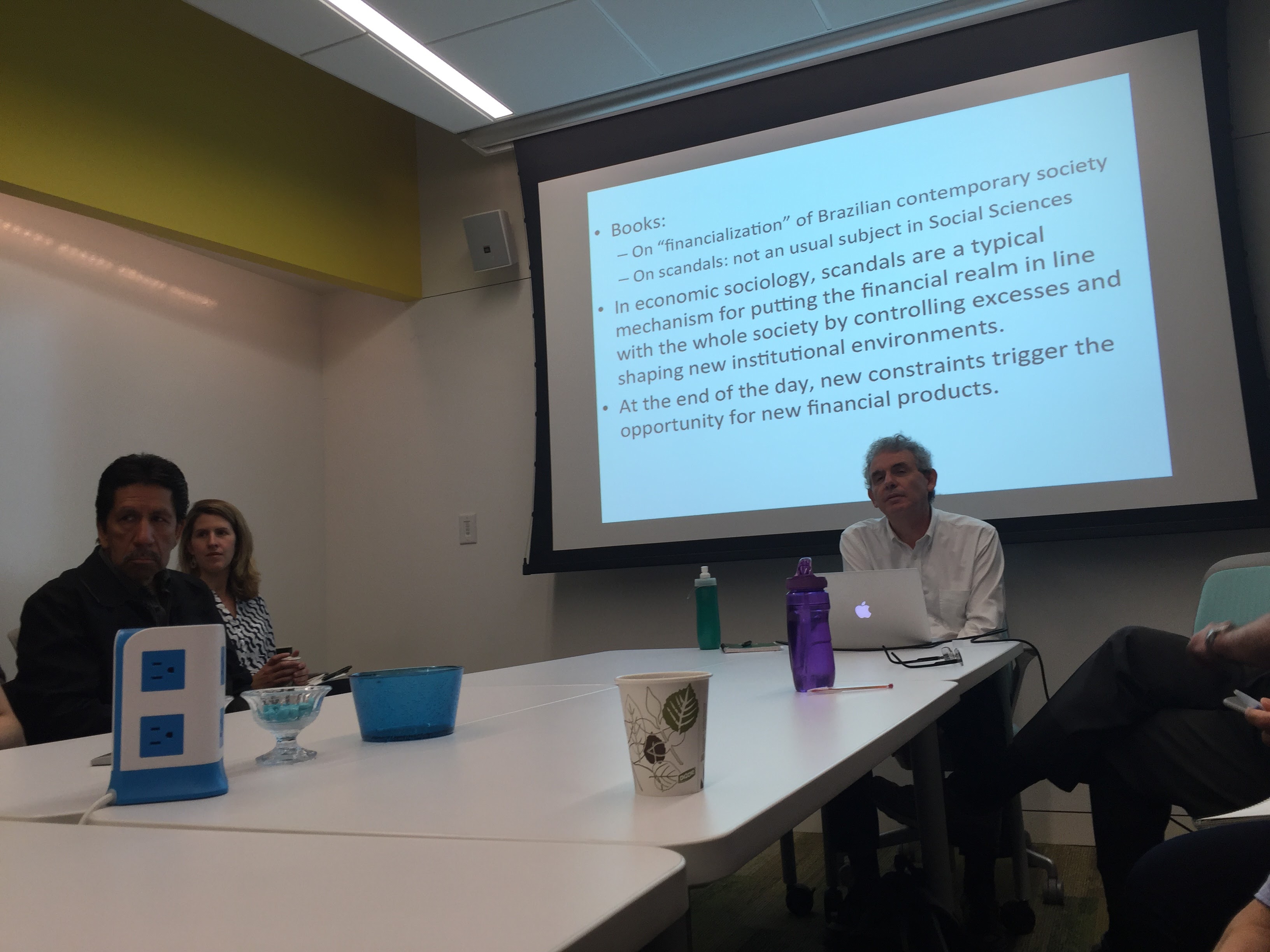Teacher PD – Reading Response
2016, Winter, Week 9
Lucas Longo
Prompt
What insights about the nature and design of online PD programs and the research on online PD did you gain by reading the set of articles by Fishman & colleagues and Moon & colleagues? What is the value of this type of “conversation” among scholars in a journal?
Response
I was pleasantly surprised initially with the results, even if conservative, that showed no “significant differences” between the online PD and the face-to-face modalities (Fishman et al, 2014). High dropout rates in MOOCS for example, might suggest that the same would occur with online PD. The population in ‘regular’ online courses are wildly different than that in online PD, yet there was a suspicion that teachers might not engage as deeply with the content as they would in face-to-face PD. The readings presented the several affordances of the online model but made clear that. I do believe that face-to-face is essential but it can be scaled down in favor of online content delivery and even community building. Further research as to what content should go online and what works best in face-to-face.
The Fishman et al 2013 piece focused on the “experimental comparison of PD delivered in two different media.” (Fishman et al, 2014). It showed that both methods of delivery work, and it “was welcomed by many as a sign that it is “safe” to employ online PD.” (Fishman et al, 2014). This research finding hopefully stimulates the market and researchers to further develop this modality to be able to scale both the training of PD facilitators and PD itself in an effective manner. The focus might start to become what subject areas and PD activities are better suited for each medium. For example, we can infer from the results that general SCK and PCK can be effectively delivered online for teachers. Yet if we think about training PD facilitators to support deep discussions around the subject or to press teachers for further inquiry, face-to-face might be more effective.
“The relative merits of online versus face-to-face conversation may vary across activities depending on the type of work planned for the teachers and the nature of sense-making and collaboration required.” (Moon, Passmore, Reiser, & Michaels, 2014, p2)
Moods’ Next Generation Science Exemplar System (NGSX) (Moon et al, 2014) seems to be a promising and solid start in exploring the hybrid modality of PD. Particularly interesting is their model of providing ‘pathways’ that enable facilitators to lead organized study groups. “There is expertise embedded in the system, in the structuring of tasks and discussions and in the ongoing commentary in embedded videos.” (Moon et al, 2014, p174) In other words, it focuses on providing research-based best-practices for leading and conducting face-to-face discussions using online content as a source of information and a scaffold for activities. This is the first I’ve seen such an effective and directed integration of the online and face-to-face methodologies; granted that my knowledge around the subject is limited, yet they strive for utilizing the best of both worlds.
The most interesting aspect of these types of “conversations” among scholars is the richness of information that emerge from it, educating us about the current state of affairs in the field in a summarized and passionate manner. Reading research papers alone you eventually form an opinion about the subject matter. This kind of dialogue between the experts you exposes to what are the controversies, the agreements, what is important or not, what needs to be changed, and what are the current theories and strategies used to tackle the field.
One thing that was not mentioned in these readings was TPCK. My thought is that by simply exposing the teachers to the affordances of the online platforms, they might start to wonder how they might incorporate them into their own practices. Even if not explicitly a subject matter in the PDs we read about, I wonder if it was secondary effect of the teacher’s learning. They might start showing videos of other kids discussing math problems to establish norms and model the behavior. The online content can be used as an aid for teachers who are less proficient in the multiple ways of explaining a certain subject.
Finally, these papers have encouraged me to continue investigating how might we embed PCK scaffolds for instructors within online course authoring tools, beyond the ‘course on creating a course’. The idea is to have a virtual coach and some virtual students that will prompt for information, provide supporting content, and ask questions about the content at the appropriate stages of planning, developing, and submitting the online course. These papers showed that learning how to teach can happen online as well.
References:
Fishman, B., Konstantopoulos, S., Kubitskey, B.W., Vath, R., Park, G., Johnson, H., & Edelson, D.C. (2013). Comparing the impact of online and face-to-face professional development in the context of curriculum implementation. Journal of Teacher Education, 64 (5), 426-438.
Fishman, B., Konstantopoulos, S., Kubitskey, B.W., Vath, R., Park, G., Johnson, H., & Edelson, D.C. (2014). The future of professional development will be designed, not discovered: Response to Moon, Passmore, Reiser, and Michaels, “Beyond comparisons of online versus face-to-face PD.” Journal of Teacher Education, 65 (3), 261-264.
Moon, J., Passmore, C., Reiser, B.J., & Michaels, S. (2014). Beyond comparisons of online versus face-to-face PD: Commentary in response to Fishman et al., “Comparing the impact of online and face-to-face professional development in the context of curriculum implementation.” Journal of Teacher Education, 65 (2), 172-176.
